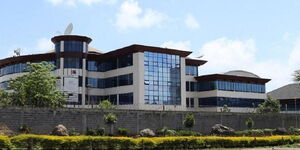The government has set a limit on the benefits Kenyans with chronic illnesses can access in the new package established under the Social Health Insurance Fund Scheme.
According to the Social Health Insurance (General) Regulations, 2024, a patient can exhaust the funds limit set when accessing the package.
However, the regulations stipulate that the said patient will transition to the benefits under the Emergency, Chronic and Critical Illness Fund.
This means that Kenyans with chronic illnesses whose benefits under the Social Health Fund package are depleted will still be catered for by the government.
"A beneficiary suffering from a chronic illness shall, upon exhaustion of his or her benefits under the Social Health Insurance Fund, access treatment for the chronic illness from a contracted healthcare provider or health facility in accordance with the benefits package provided, to be paid for under the Emergency, Chronic and Critical Illness Fund," read part of the regulations.
Through the SHIF scheme, the government repealed the National Health Insurance Fund (NHIF) and established three new funds; Primary Healthcare Fund, Social Health Insurance Fund and Emergency Chronic and Critical Illness Fund.
The primary Healthcare Fund will purchase services from health facilities at levels 1 to 3 while the Social Health Insurance Fund will cover services at levels 4 to 6.
The Emergency, Chronic and Critical Illness Fund will handle emergency and chronic illnesses costs once the Social Health Insurance Fund is depleted.
According to Clause 27 (5) of the Regulations, emergency medical treatment includes pre-hospital care, stabilisation of the health status of the individual and arrangements for referral to health facilities that can stabilise the health status of a victim.
Some of these medical emergencies include cardiac arrest, major trauma resulting from life-threatening injuries, unconsciousness, severe respiratory distress, seizures, acute coronary syndrome or chest pains.
Others include stroke, pregnancy-related complications and ambulance and evacuation services.
For instance, a person who suffers from cardiac arrest will access services such as blood sugar test, blood gas analysis, point-of-care ultrasound, electrocardiogram, chest X-ray, full hemogram, electrolytes, and urine pregnancy test.
The healthcare provider will perform resuscitation, pacing, chest tube insertion and Intensive Care Unit (ICU) admission for 24 hours if need be.
Once a patient is catered for, a healthcare provider lodges a claim with the Claims Management Office for the payment of the healthcare services provided under the benefits package.
"Provided that the payments by the Authority for the provision of emergency services shall be made to a licensed and certified healthcare provider or health facility in accordance with the benefits package," read part of the regulations.












